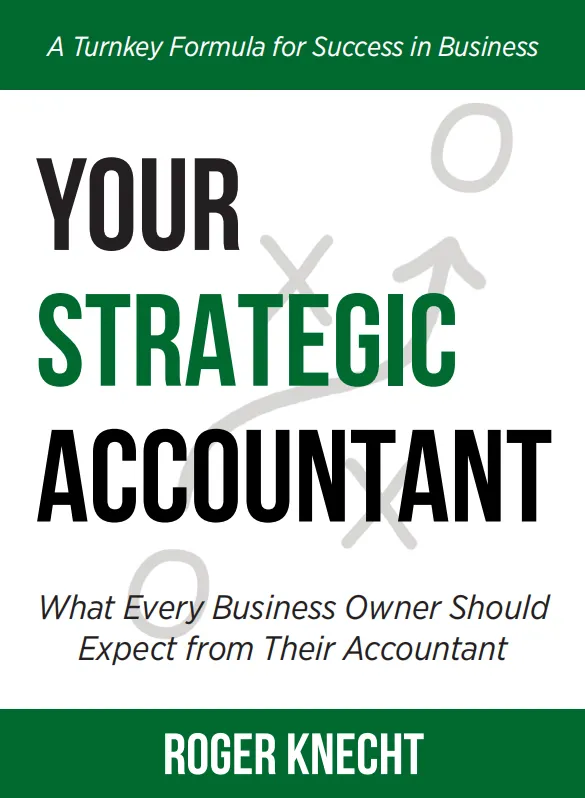Bookkeeping is an essential aspect of any business, big or small. It involves the record keeping, organizing, and managing of financial operations and information. Bookkeeping is crucial for expense tracking to keep track of business finances, make informed decisions, and comply with tax laws.
In this article, we will explore what bookkeeping is, why it is important, and how it can benefit your business.
What is Bookkeeping?
Bookkeeping is the process of recording and organizing financial transactions, such as purchases, sales, receipts, and payments, in a systematic manner. It involves creating and maintaining accurate financial records, including income statements, balance sheets, and cash flow statements.
Bookkeeping is often confused with accounting, but they are two distinct processes. Bookkeeping is the first step in the accounting process, while accounting involves analyzing, interpreting, and summarizing financial data to make informed business decisions.
The Role of a Bookkeeper
A bookkeeper is responsible for maintaining accurate financial records for a business. Bookkeepers also ensure that all financial reporting is up-to-date and accurate, making them an essential part of any business.
Why is Bookkeeping Important?
Bookkeeping is crucial for businesses for several reasons. Here are some of the key reasons why bookkeeping is important:
Financial Management
Bookkeeping plays a crucial role in helping businesses understand their financial well-being by providing them with a detailed and transparent overview of their monetary transactions. Through the meticulous recording of all incoming and outgoing funds, businesses are able to closely monitor their cash flow, pinpoint any instances of excessive spending, and analyze their financial data to effectively enhance their overall financial strategies. By maintaining precise and up-to-date accounting records, businesses can make well-informed decisions that promote their financial growth and stability in the long term.
Tax Compliance
Bookkeeping serves as the foundation for small business accounting and plays a crucial role in ensuring tax compliance. By maintaining accurate financial records, businesses are better equipped to file their tax returns with precision, minimizing the risk of errors or omissions that could lead to penalties or audits. In addition, meticulous bookkeeping enables businesses to effectively track their financial transactions and identify potential tax deductions and credits that can help reduce their overall tax liability. By staying on top of their bookkeeping responsibilities, businesses can not only streamline their tax preparation process but also take advantage of all available tax benefits.

Business Growth
Accurate bookkeeping is crucial for businesses looking to grow. By keeping track of financial records, businesses can identify areas of growth and make informed decisions to expand their operations. Bookkeeping also helps businesses to secure loans and investments by providing accurate financial information to potential lenders and investors.
Legal Compliance
Bookkeeping is essential for legal compliance. Businesses are required to keep accurate financial records for a certain period, depending on their location and industry. Failure to comply with these regulations can result in penalties and legal consequences.
How Can Bookkeeping Benefit Your Business?
Bookkeeping can bring several benefits to your business. Here are some of the key benefits of bookkeeping:
Better Financial Management
Accurate bookkeeping provides businesses with a clear understanding of their financial health. By keeping track of income and expenses, businesses can identify areas of overspending and make informed decisions to improve their financial management.
Improved Decision Making
Bookkeeping provides businesses with accurate financial data, allowing them to make informed decisions. By analyzing financial records, businesses can identify areas of growth, make strategic investments, and improve their overall operations.
Tax Savings
Accurate bookkeeping can help businesses save money on taxes. By keeping track of expenses and identifying tax deductions and credits, businesses can reduce their tax liability and save money.
Easier Audits
In the event of an audit, accurate bookkeeping can make the process smoother and less stressful. By keeping organized and up-to-date financial records, businesses can easily provide the necessary information to auditors, reducing the risk of penalties and fines.

How to Get Started with Bookkeeping
Certification
Getting certified in bookkeeping can be a crucial step in advancing your career in the financial industry. By obtaining a certification, you can demonstrate to employers and clients that you have the necessary skills and knowledge to effectively manage financial records and transactions. This can increase your credibility and marketability in the competitive job market, potentially opening up more opportunities for higher-paying positions.
Additionally, certification can help you stay current on industry trends and best practices, ensuring that you are constantly improving and expanding your skill set. Overall, investing in certification shows a commitment to professional development and can set you apart from others in the field.
Professional Bookkeeper Certification
Obtaining the Professional Bookkeeper™ designation signifies mastery in the practical application of accounting processes within small to mid-sized businesses. This designation underscores an accountant’s dedication and proficiency in delivering high-quality services to employers or clients. Whether you aspire to specialize in bookkeeping for small to mid-sized businesses or seek to advance your career with recognized credentials, exploring the Professional Bookkeeper Certification is essential.
Tailored to meet the growing demand for skilled professionals in small business bookkeeping and accounting, the Professional Bookkeeper Certification Program equips individuals with the expertise needed to excel in this field.
Professional Bookkeeper’s Guide to QuickBooks.
Become a QuickBooks Specialist™ with our comprehensive certification program, The Professional Bookkeeper’s Guide to QuickBooks. Whether you’re a seasoned bookkeeping professional or just starting out, this course is tailored to equip you with the skills needed to proficiently utilize QuickBooks. Given that over 80% of small businesses rely on Intuit’s QuickBooks software for their accounting needs, mastering this platform through our online certification course can elevate your career prospects.
Our program is designed to empower you with the knowledge and expertise to not only excel within your current role but also expand your services by offering setup, consultation, and support to clients. Gain a competitive edge in the job market or enhance your own practice by becoming a certified QuickBooks Specialist™.
Your business is an asset. You should know its value and understand how to maximize it.
Choose a Bookkeeping Method
The first step in bookkeeping is to choose a method for recording financial transactions. You can either use a manual method, such as a ledger or spreadsheet, or use bookkeeping software. Bookkeeping software can automate many tasks and make the process more efficient.
Set Up a Chart of Accounts
A chart of accounts is a list of all the accounts used in bookkeeping, such as assets, liabilities, and expenses. It is essential to set up a chart of accounts to ensure that all financial transactions are recorded accurately.
Record Financial Transactions
Once you have set up your bookkeeping method and chart of accounts, you can start recording financial transactions. This includes recording sales, purchases, expenses, and payments. It is crucial to record transactions accurately and in a timely manner.
Reconcile Accounts
Reconciling accounts involves comparing financial records to bank statements to ensure that they match. This helps to identify any discrepancies and ensure that all transactions are recorded accurately.
Produce Financial Reports
The final step in bookkeeping is to produce financial reports, such as income statements, balance sheets, and cash flow statements. These reports provide businesses with a clear understanding of their financial health and help them make informed decisions.

Bookkeeping Jobs Near Me
If you are interested in pursuing a career in bookkeeping, there are several job opportunities available. Here are some of the most common bookkeeping jobs.
Bookkeeper
A bookkeeper is responsible for maintaining accurate financial records for a business. They record financial transactions, reconcile accounts, and produce financial reports.
Accounting Clerk
An accounting clerk is responsible for assisting with bookkeeping and accounting tasks, such as recording financial transactions, reconciling accounts, and producing financial reports.
Accounts Payable Clerk
An accounts payable clerk is responsible for managing a company’s accounts payable, including processing invoices, making payments, and reconciling accounts.
Accounts Receivable Clerk
An accounts receivable clerk is responsible for managing a company’s accounts receivable, including invoicing customers, collecting payments, and reconciling accounts.
News
As staff shortages plague accounting firms across the US, a rebel movement is pushing for relaxed education requirements to join the profession. Some states, including South Carolina and Minnesota, are advocating alternatives to the “150-hour” rule, which mandates an extra year of education beyond the standard undergraduate course. Proposed legislation seeks to allow licensure with 120 hours of education plus additional experience or courses.
Critics argue the rule discourages diversity and could be replaced with on-the-job training. The debate highlights the challenges in adapting to workforce needs in the accounting sector.

Conclusion
Bookkeeping is an essential aspect of any business. It involves recording, organizing, and managing financial transactions and information. Bookkeeping is crucial for businesses to keep track of their financial health, make informed decisions, and comply with tax laws. By implementing bookkeeping best practices, businesses can benefit from improved financial management, better decision making, tax savings, and easier audits.
Share this post: on Twitter on Facebook on Google+







